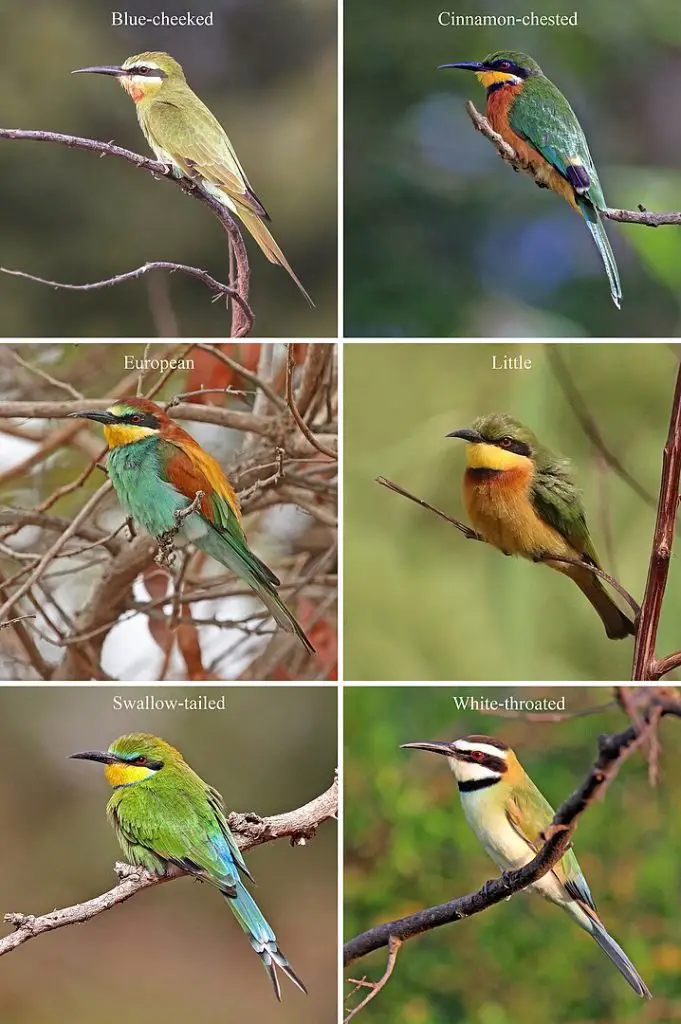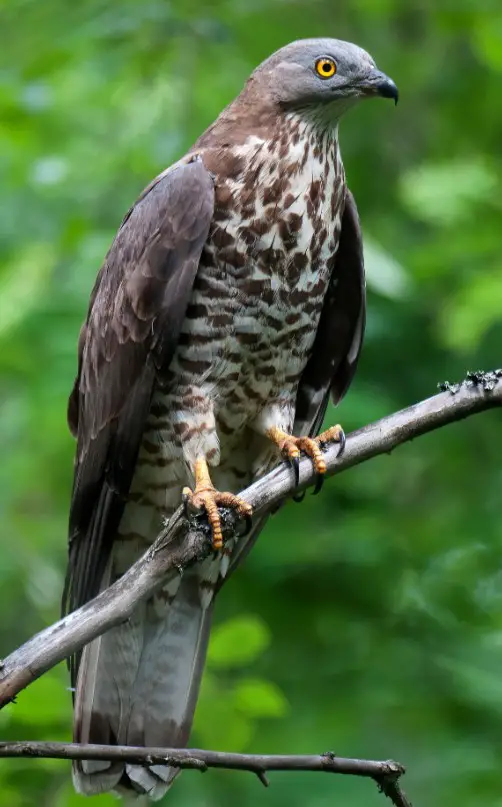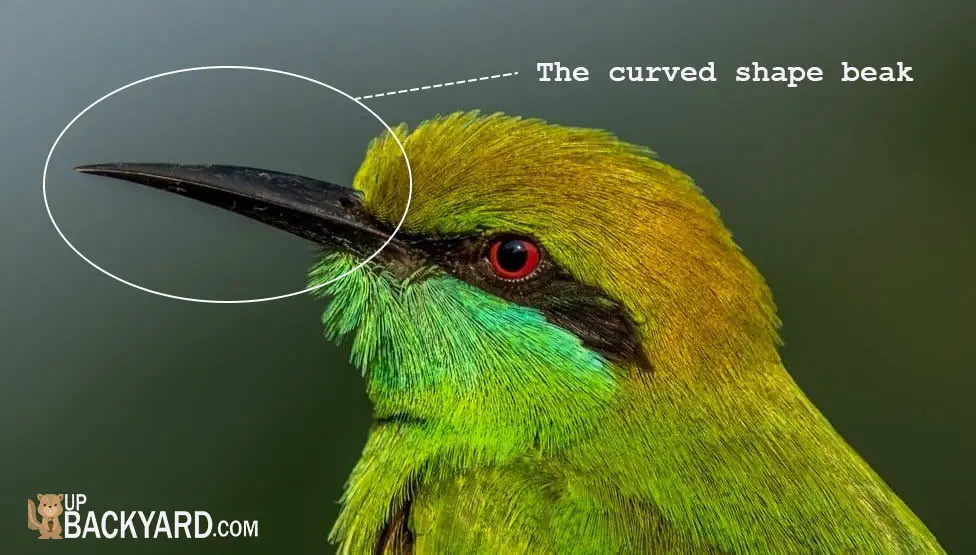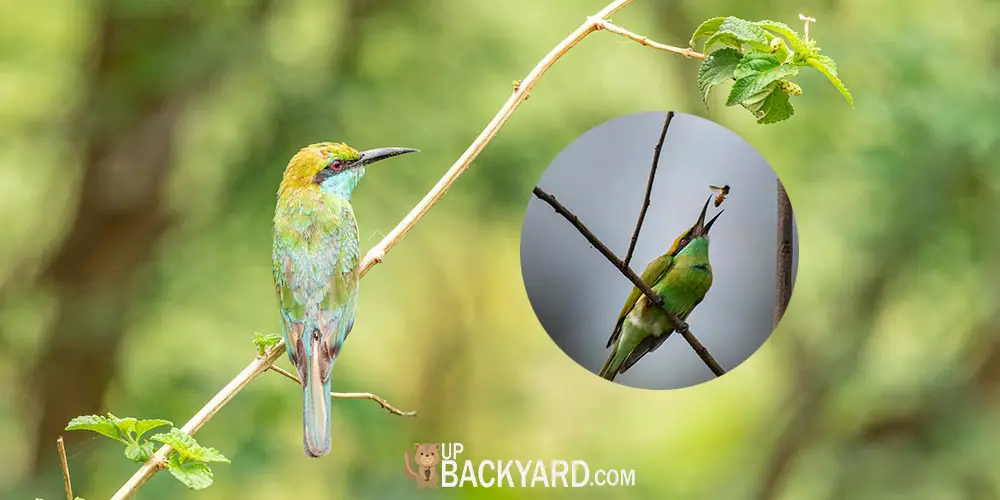Have you ever wondered what creature eats bees?
Not many can want to gamble with the chance of getting a stinger in their mouth, but bees have to be eaten by something to keep the food chain in order.
Maybe birds eat bees. Their beaks must protect them from possible stingers and some birds are as fast as bees. So, let’s answer this question, do birds eat bees?
Will Birds Eat Bees?
Birds have quite a variety in their diet with the kinds of insects that they will eat. We know that birds will eat worms and other insects, but did you know that some birds will also eat bees?
Not every kind of bird will eat bees, but there are a collection of bird species that aren’t afraid of the stinger and will get a protein-rich meal.
What Birds Will Eat Bees?
Birds that will eat bees range in their willingness to eat these creatures. Some bird species eat bees as a part of a wide collection of food choices. Other birds will exclusively eat bees as their main source of nutrients.
In Africa, there are a collection of bird species known as Bee-Eaters that, as the name implies, will eat bees. These birds pretty much only eat bees, and they eat the bees that are flying around in Africa.

Bee-Eaters have curved beaks that make capturing bees a lot easier to do. They will live in the ground, creating burrows to protect them from prey.
When one of these birds captures a bee, the bird will make sure that the bee is no longer a threat before eating it.
Usually, the bee will die from getting its head bashed on a branch. The bird will then tear off the stinger to it can’t be any threat.
Once the bee can’t possibly hurt the bird, the Bee-Eater will eat it. Learn more about this fierce bird through this informational video by National Geographic. These birds are both cool and feisty.
Then there are Honey Buzzards. This bird is slightly different from other bee-eating birds because the Honey Buzzard doesn’t prefer to eat adult bees. Instead, this bird will follow a bee back to its hive and tear into it, eating the larvae.

The feathers on Honey Buzzards are grown in a way that acts as armor for these birds. Not only will their armor feathers protect them from the elements, it also protects them from the attacks and stings of bees. They have to be nicely protected if they are going to attack a bee’s home.
Cardinals, woodpeckers, and a few other birds make up a collection of birds that will only sometimes eat bees. Unlike Honey Buzzards, Bee-Eaters, and even Scarlet Tanagers, but these birds don’t eat bees as the main component of their diet.
With many of these birds, bees are something to be eaten if they are in the area. It’s not a woodpecker’s first choice, but it will do the job to give the bird the nutrition that it needs.
How Do Bee-Eating Birds Keep Themselves Safe?
When bees are a big part of a bird’s diet, they need to make sure that they can fight against the threats that bees have.
A bird has to have a way to deal with a bee’s stinger and has to protect itself from swarming if they attack the hive.
The shape of a bird’s beak is a big component of them eating bees. We’ve discussed that the curved shape of a Bee-Eater helps them capture a bee in a way that keeps them safe from stingers. Other birds will have sharp beaks that will prevent bees from moving when getting eaten.

Another way that a bird will keep themselves safe while eating a bee is by acting quickly.
Some birds will snatch a bee from the air so fast that the bee doesn’t know what’s happening before they are in the stomach of a bird.
Other birds, such as the Honey Buzzard, have tough feathers that will protect them from the stings of bees. This is very helpful if the bird goes to the hive to get its meal. The chances of being swarmed at a beehive are very high so a bird must be prepared.
When dealing with large bees, a bird will be able to snatch a bee and rub off the stinger before it can get stung.
Eating bees requires a bird to be extremely quick and agile, which many of the smaller birds can accomplish. They also have to have strong enough beaks to carry bees as some of them can be pretty big.
You might also like: Nectar Noshers: Do Hummingbirds Eat Bees?
Are Birds a Threat to the Bee Population?
In some areas, specific types of bees are endangered. Many worry that birds can be a threat to bee populations since many of them rely on bees alone to get their nutrients. However, there isn’t a reason to worry that birds are going to cause bees to go extinct.
There are many more bees out there than some of us might realize. Bee populations are all around the world and they have a very quick reproduction rate. If bees didn’t have predators such as bee-eating birds, the population of bees can get really out of hand.
Bees have predators that are more dangerous than birds, like bears that will tear apart a beehive for nutrients.
When wanting to protect bees, we need to look at the creatures who are doing the most damage to a bee’s habitat. While Honey Buzzards do damage to beehives, there aren’t many birds that will do this.
Overall, birds and bees do well at coexisting, as they have done for many years.
Frequently Asked Questions
Do Birds Get Stung by Bees?
When a bird is going to compete with a bee or eat a bee, it needs to have a way to protect itself from the sharp stinger that a bee has. However, not every bird does a well enough job all the time at keeping itself safe.
Sometimes, a bird will still get stung by a bee. This most commonly happens when there are several bees in the area and the bird gets swarmed.
A bird won’t face death if they get stung, but it will deter the bird from continuing its attack. The stinger will irritate the bird and it won’t be a fun experience.
If a bird gets swarmed and stung repetitively (or if they are stung several times by wasps,) it can be at high risk of developing an infection. This can then kill a bird if the infection gets too bad.
Why Do Birds Eat Bees?
Why do birds bother with the dangers of a bee when there are other insects out there? For many birds, bees are a great source of protein. Since they have the speed and swiftness to take a bee out before they realize it, they are one of the few creatures that can eat bees somewhat safely.
The size of bees is another reason why their nutrients are worth it to bees. Sure, a fly would be safer to eat than a bee, but it won’t have the same amount of protein. Sometimes, the risks are worth it for the amount of nutrients the bird will get.
Will Birds Eat Wasps?
Along with bees, many birds will also get their nutrients by eating wasps. Usually, the fastest and most agile birds are the ones that will eat wasps as wasps come with more danger than a bee.
Some of the birds that will eat wasps include woodpeckers, mocking jays, swallows, and quite a few more.
Do Birds Eat Mosquitos?
Bees and wasps aren’t the only things that a bird will eat. In fact, birds tend to eat many of the insects that we find highly annoying. Mosquitos are an insect that not many people enjoy having around. Luckily, birds will eat mosquitos as a part of their insect-rich diet.
Birds will also eat gnats, flies, and even some spiders. They tend to help gardens out by eating the pests that end up destroying plants.
Do Blue Jays eat Bees?
Blue Jays are one of the birds that won’t eat adult bees or wasps. However, like the Honey Buzzard, a Blue Jay will break into a beehive and eat the larvae that are in there. These birds have to be swift to not get swarmed by defensive bees.
Final Thoughts
Birds have a diet that many people would not want to share. Bees are one of the many insects that birds will eat to get all the protein that they need. Really, bees are a great source of vitamins and nutrients for birds to get.
If you have many birds flying around your garden, do you also get a lot of bees? Or do the bees get eaten by birds?
Let us know in the comments! It can be hard to balance having plenty of pollinators in your garden and also having bird friends fly around.
